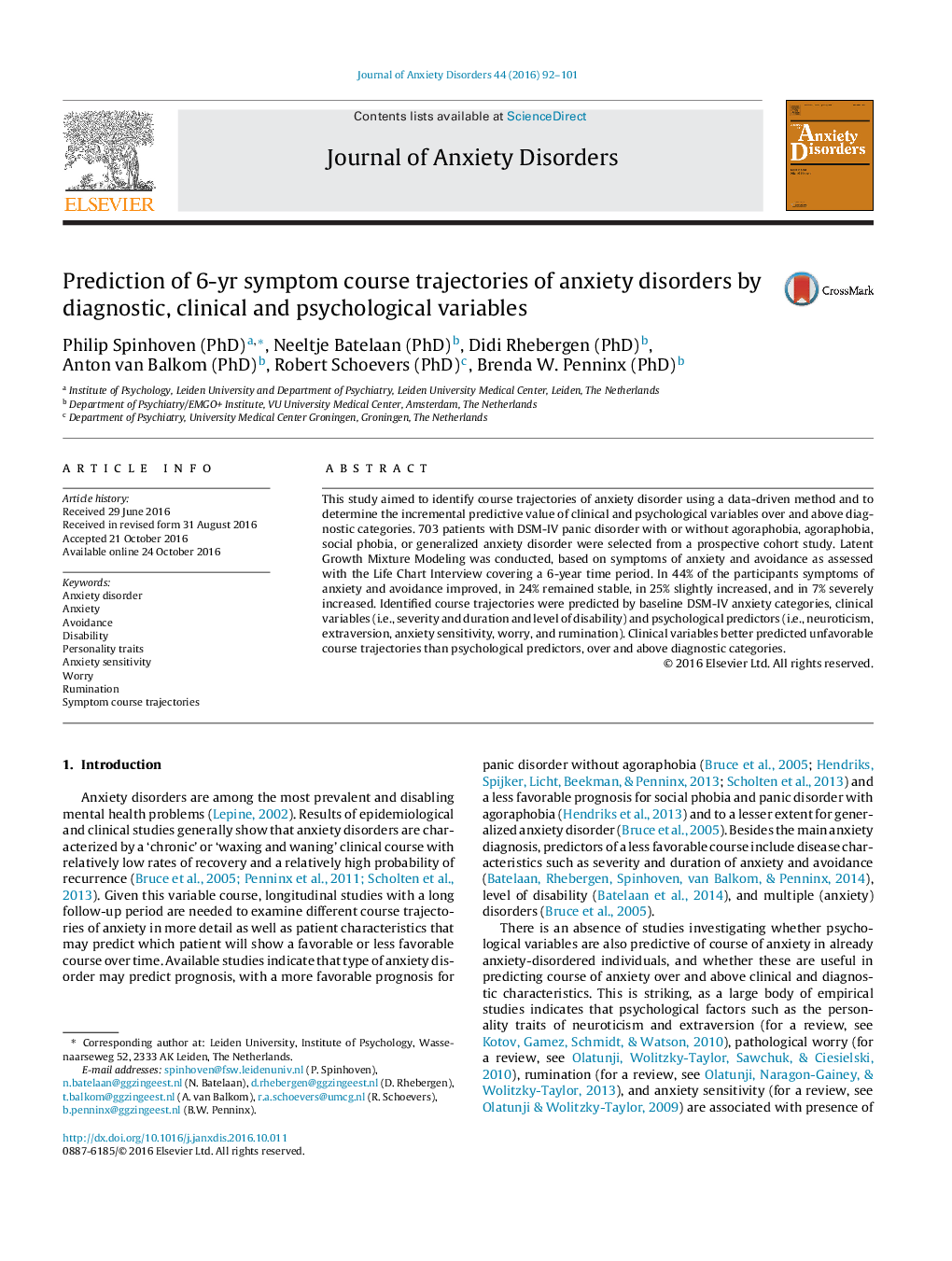| Article ID | Journal | Published Year | Pages | File Type |
|---|---|---|---|---|
| 5038957 | Journal of Anxiety Disorders | 2016 | 10 Pages |
â¢Six-year course trajectories of anxiety varied from improvement to deterioration.â¢Diagnostic anxiety classifications had limited value in predicting course of anxiety.â¢Severity, duration and disability best predicted unfavorable course trajectories.â¢Psychological variables at baseline showed a weak relationship with course of anxiety.
This study aimed to identify course trajectories of anxiety disorder using a data-driven method and to determine the incremental predictive value of clinical and psychological variables over and above diagnostic categories. 703 patients with DSM-IV panic disorder with or without agoraphobia, agoraphobia, social phobia, or generalized anxiety disorder were selected from a prospective cohort study. Latent Growth Mixture Modeling was conducted, based on symptoms of anxiety and avoidance as assessed with the Life Chart Interview covering a 6-year time period. In 44% of the participants symptoms of anxiety and avoidance improved, in 24% remained stable, in 25% slightly increased, and in 7% severely increased. Identified course trajectories were predicted by baseline DSM-IV anxiety categories, clinical variables (i.e., severity and duration and level of disability) and psychological predictors (i.e., neuroticism, extraversion, anxiety sensitivity, worry, and rumination). Clinical variables better predicted unfavorable course trajectories than psychological predictors, over and above diagnostic categories.
